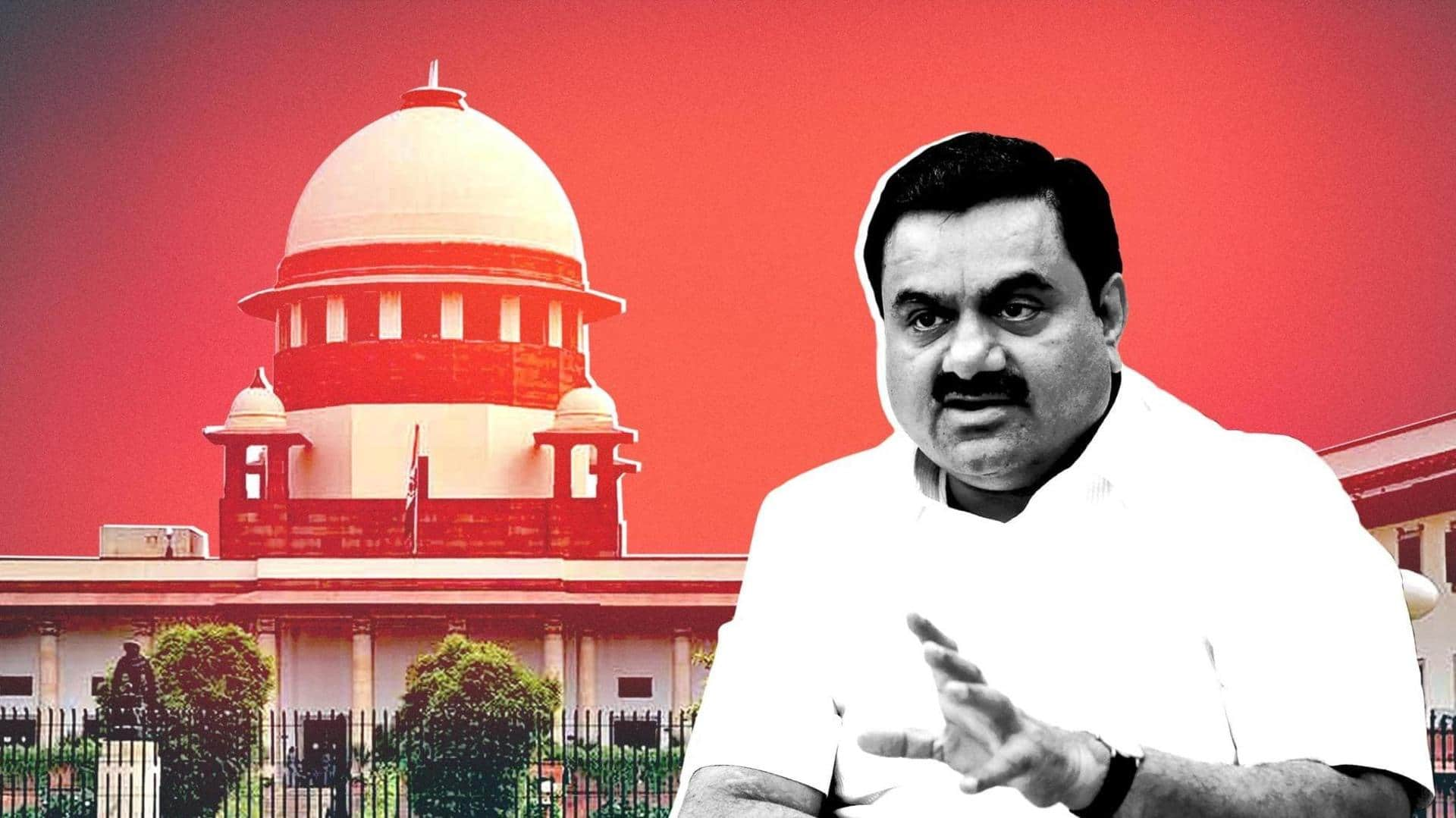
Findings of Supreme Court-appointed panel on Adani-Hindenburg issue, explained
What's the story
Adani Group has been under regulatory and judicial scrutiny after the US-based short-seller Hindenburg Research accused the conglomerate of accounting fraud and stock manipulation.
In March, the Supreme Court set up an expert panel to oversee investigations into the group. Now, the report of the panel has been made public.
Let's see what the expert panel has to say about the conglomerate.
Context
Why does this story matter?
The report by the Supreme Court-appointed expert panel comes soon after the court gave the Securities and Exchange Board of India (SEBI) time till August 14 to complete its investigation into allegations by Hindenburg Research.
Previously, the market regulator denied claims that it had been probing Adani Group since 2016. Will the report put more pressure on SEBI?
Price manipulation
There is no proof of regulatory failure: Expert panel
One of the most significant allegations in the Hindenburg report was Adani Group manipulated the price of its stocks. The committee looked into any regulatory failure which may have led to that.
In its report, the six-member panel said "it would not be possible for the committee to conclude that there has been a regulatory failure around the allegation of price manipulation."
Artificial trading
Committee attributed price volatility to the Hindenburg report
The committee led by Justice AM Sapre did not find any pattern of "artificial trading" or "wash trades" with Adani Group stocks.
It attributed the high volatility in Adani stocks to the Hindenburg report. Since the report, the share prices of listed companies of the conglomerate have fallen.
But the committee said such 're-pricing' cannot be linked to a violation of the law.
Regulatory failure
The committee's mandate was to look into regulatory failure
In its report, the expert panel emphasized that its mandate was to only probe whether there was a regulatory failure. It said its job was not to ascertain the justifications behind the price rise.
The committee added there was no evidence of any manipulation to increase the price of Adani Energy Limited. It, however, asked SEBI to analyze the price movements of Adani stocks.
Foreign entities
SEBI has been investigating 13 foreign entities
The report said SEBI has been investigating 13 overseas entities with suspected links to the promoters of the Adani Group.
If they have links to the conglomerate's promoters, it will be a violation of the minimum public shareholding requirement.
The 13 entities have supplied information about their beneficial owners, and there is no evidence to prove they are not beneficial owners.
Only suspicion
The regulator's doubts were reinforced by the Hindenburg report
The committee said SEBI has not been able to make out a case against Adani Group regarding the foreign entities.
Therefore, it remains a suspicion. The report, however, noted SEBI's doubts about the 13 foreign entities were reinforced by the Hindenburg report.
The regulator is still probing this matter, the expert panel told the Supreme Court.
Related party transactions
Legislative policy and enforcement cannot move in different directions: Panel
The committee criticized SEBI's investigation into related party transactions. It said some of the transactions the regulator is investigating are nearly a decade old.
Therefore, they do not fall under the LODR (Listing Obligations and Disclosure Requirement) regulations. It said legislative policy and enforcement cannot move in two different directions.
The panel said SEBI cannot probe them in the name of 'spirit of law.'
Short position
Committee found 6 entities took short positions in Adani stocks
The panel's findings do not end there. It said there was evidence of suspicious trading on the part of six entities, including four FPIs, one body corporate, and one individual.
The committee flagged them because it found that the six entities took short positions in Adani stocks before the publication of the Hindenburg report.
After the report, they made significant profits, it noted.
Not cooperative
Several international firms did not cooperate with the committee
The expert panel said it approached various international firms to discuss the Adani-Hindenburg issue. "None of the international security firms and banks were desirous of engaging with the committee," the report said.
While some of them did not cooperate due to a conflict of interest arising from commercial relationships with Adani Group, it is unclear why others did not.
Information
Who were the members of the committee?
The six-member committee, headed by former Supreme Court judge Justice Sapre, comprised the former chairman of SBI OP Bhatt, Infosys co-founder Nandan Nilekani, former Infosys chairman KV Kamath, former Bombay High Court judge Justice JP Devadhar, and securities lawyer Somasekhar Sundaresan.